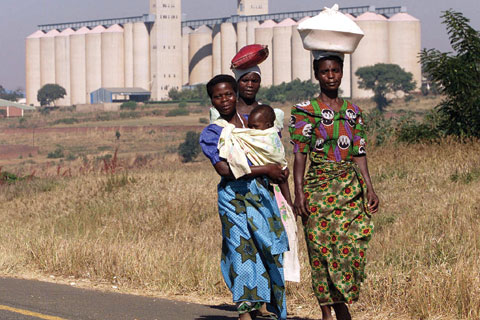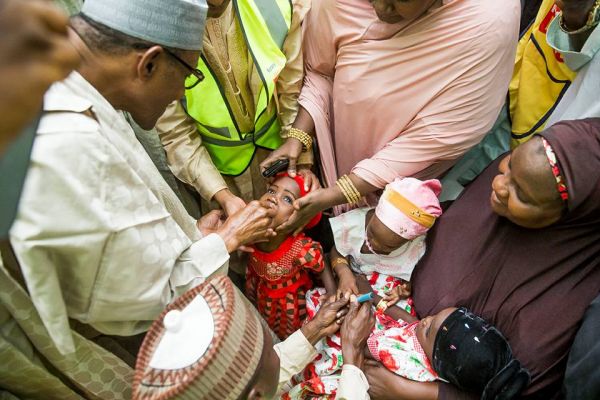
More than 2.8 million people will face hunger in the coming lean season (October –March) following severe floods and drought that ruined this year’s harvest, according to latest Malawi Vulnerability Assessment Committee figures.
The floods early this year were the worst in living memory in Malawi, washing away homes and food stocks, and ruining fertile land. Some crops managed to withstand the floods only to succumb to intense dry spells in the following months, making survival even more difficult for the most vulnerable.
Life-saving food and cash-based transfers have been given top priority in the response plan which is designed to protect lives and prevent hunger. It is also vital to secure already hard-won development gains in areas such as health and education. People in some affected districts have already started selling their livestock to make ends meet. Women are also engaging in more firewood and charcoal selling, which degrades the environment and further aggravates the fragile climate.
The United Nations’ World Food Programme (WFP) is grateful to the Government of Malawi, which is contributing 26,600 metric tons of maize from its Strategic Grain Reserves to the relief response.
“We applaud the commitment of the government and development partners in times of increased global needs and appreciate swift support from those that have come forward early, especially the United States and Italy, to ensure that Malawi’s most vulnerable receive the life-saving support they desperately need,” says WFP Representative Coco Ushiyama.
Since the end of last year, WFP has provided relief assistance to avert hunger in households hit by poor rainfall during the 2013/14 growing season and the floods in early 2015. This operation has already reached more than one million vulnerable people.
However WFP, which is financed entirely by voluntary contributions from governments, companies and private individuals, is currently less than 25 percent funded for the relief operation that lies ahead. US$81 million is still required to meet the needs of the most vulnerable from next month to March 2016.
“Additional contributions are urgently needed,” says Ms. Ushiyama. “We have an innovative toolbox to respond – including food and cash-based transfers.”
Timely funding is essential for an efficient and effective response, especially to enable the pre-positioning of food stocks by November, ahead of the rainy season, in rural areas where road access may be cut off.
A swift response is imperative to save children’s lives and prevent worsening undernutrition, particularly stunting among children. Stunting not only limits people’s growth, but also their cognitive development, and has far-reaching effects on health and productivity over a lifetime. A recent Cost of Hunger in Africa report for Malawi estimated that stunting, which at 42 percent is among the highest in the region, costs the nation nearly US$600 million annually.
Additional funding of US$10 million is urgently needed for WFP to maintain school feeding, nutrition support and a refugee operation through March 2016. Both school feeding and nutrition support become even more important in times of food crisis, especially for women and girls who are the first to be pulled out of school or served smaller helpings at mealtimes.












